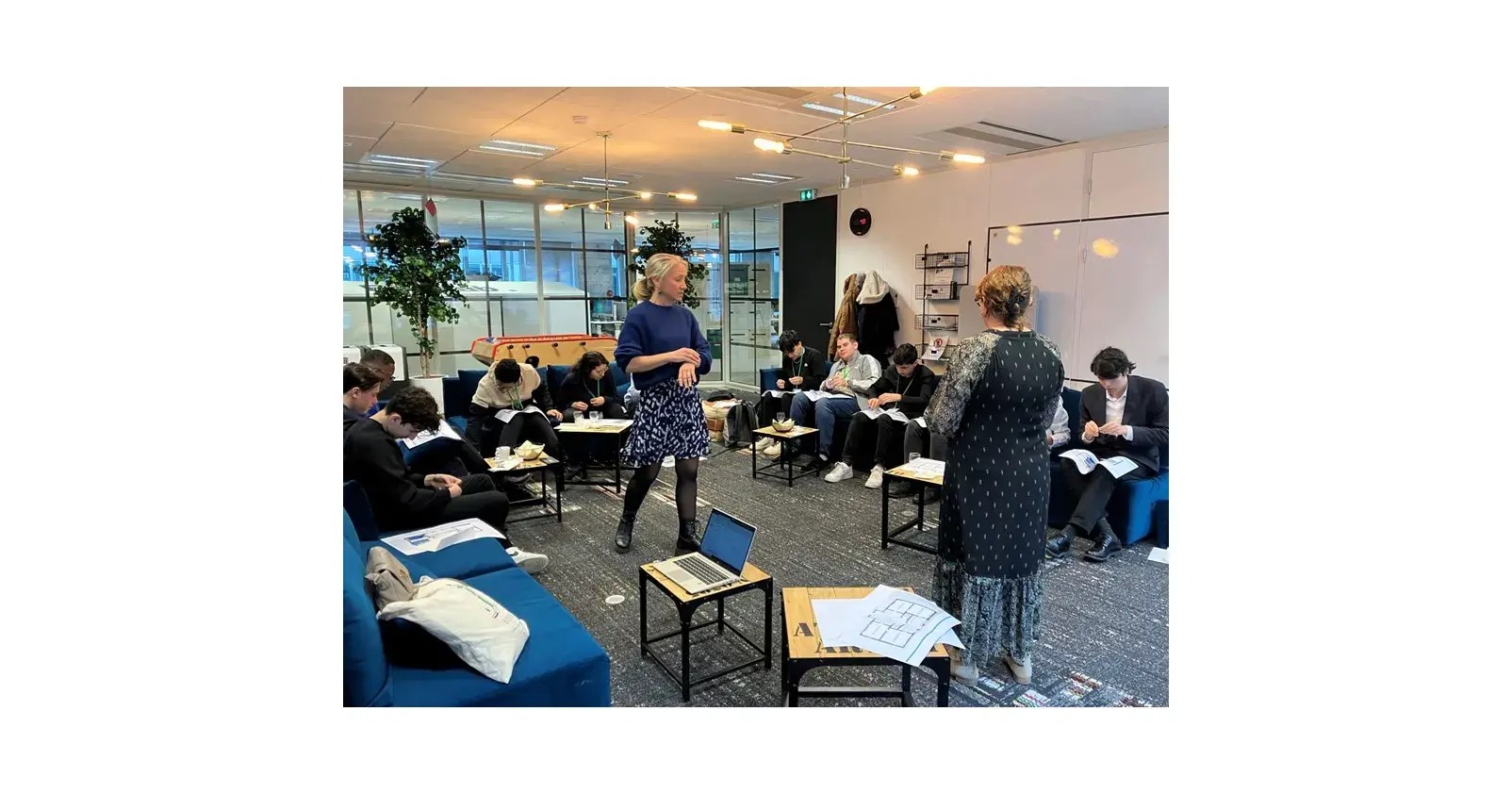- Every year for the last five years, BNP Paribas Cardif has held P-Tech Days alongside IBM and Orange.
- These are two immersion days when high school students are mentored by BNP Paribas Cardif employees and are able to explore our premises and find out about our partner companies.
- The P-Tech Days are part of a series of initiatives carried out by our company as part of the P-Tech program.

What is the P-Tech program?
- IBM created and implemented the P-Tech project (Pathways in Technology Early College-High School) in 2011 at a school in New York. The initiative aimed to promote equal opportunities and received the support of the American government.
- The program was then rolled out around the rest of the world.
P-Tech Days: BNP Paribas Cardif opens up its doors to high school students for two days of immersion
Students in the last year of high school from the La Tournelle school in La Garenne-Colombes, mentored by BNP Paribas Cardif employees, will take part in two days of immersion with partner companies.
Workshops, games and presentations will allow these high school students to:
- get familiar with new professions and sectors of activity (insurance, coding, and more)
- learn about tomorrow’s challenges;
- build up networks by meeting professionals in the field;
- explore the Odyssée site in Nanterre, where over 4,000 BNP Paribas Cardif employees have been working for the last ten years (Station France, Cardif Lab, trading room, and more).

BNP Paribas Cardif promotes equal opportunities through the P-Tech program
Introducing high school students to the business world through mentoring
27 mentors from BNP Paribas Cardif guide these high school students and help them build their professional careers by providing them with a clearer vision of the business world and by introducing them to the digital professions of today and the future, notably in the insurance sector.

Other BNP Paribas Cardif initiatives within the framework of the P-Tech scheme
Expert presentations at our partner high school
BNP Paribas Cardif employees visit the La Tournelle high school to share their expertise with high school students through a series of workshops on various subjects, including:
- help with writing CVs and covering letters;
- raising awareness of e-identity and cyber-security issues;
- using social networks.
Mentored students invited to major events
Mentored high school students are regularly invited to attend major sporting and cultural events sponsored by BNP Paribas, including:
- The Roland Garros tournament;
- Film previews.
BNP Paribas: co-creator of the P-Tech system in France
At the Tech for Good 2019 summit, BNP Paribas companies, IBM and Orange launched the P-TECH project in France, in partnership with the Ministry of National Education and Youth.
This project aims to promote equal opportunities by allowing young people from all backgrounds to develop the skills they need for tomorrow’s professions.
The P-Tech program is based on public-private partnerships between educational establishments and private companies.
Since 2020, the Efficiency Technology & Operations (ETO) unit of BNP Paribas Cardif has been officially committed to this scheme, which is open to all employees, under the supervision of Michael Nguyen, Deputy CEO of Efficiency, Technology and Operations at BNP Paribas Cardif.